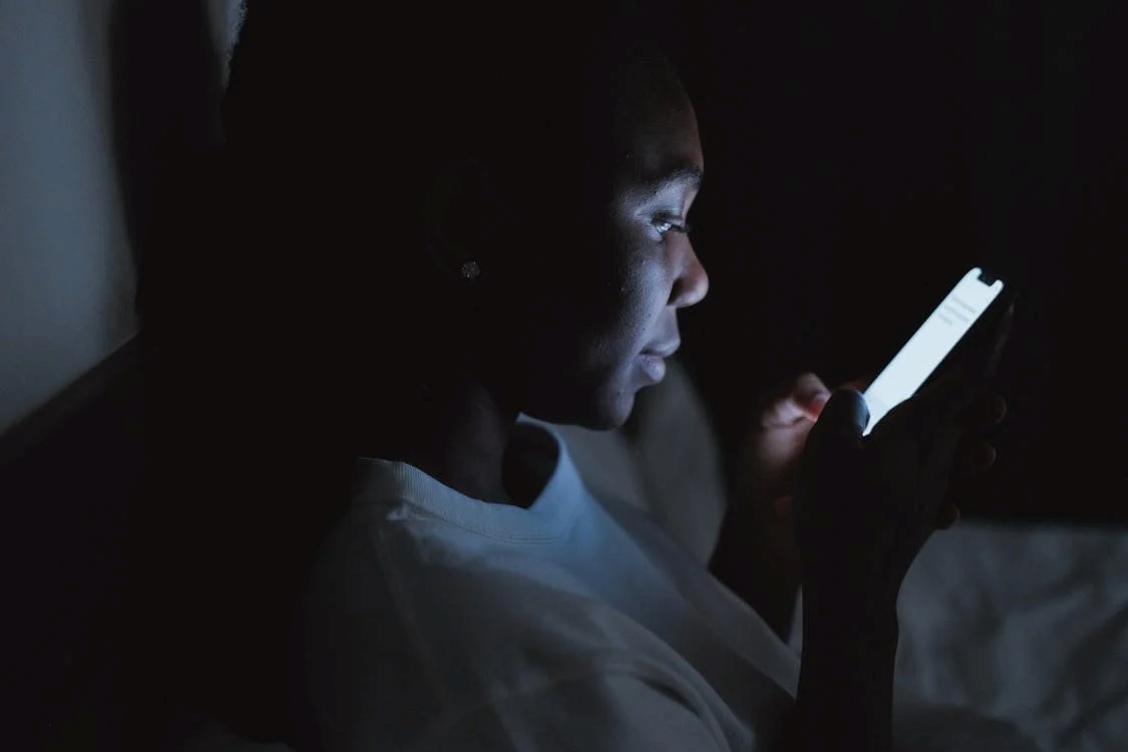
Link Found Between Nighttime Phone Use, Cyberbullying and Sleep in Teens
Excessive smartphone use has become a widespread problem. But how much is too much? On average, adults spend around 3 hours and 15 minutes on their phones daily. According to the Centers for Disease Control and Prevention (CDC), teenagers from 11 to 14 years old have a total screen time (including smartphones, TVs, laptops, and iPads) of 9 hours, and 15- to 18-year-olds spend 7.5 hours each day looking at screens.
Excessive phone usage in young adults and teenagers has been associated with both physical and mental health issues, such as anxiety and depression. Problematic social media use, which can also be a source of cyberbullying, may be a large contributing factor. The novel form of bullying can also cause significant mental, emotional and physical stress.
Both excessive screen time and cyberbullying can disrupt sleep patterns, especially in those who use their phone during the night. A study published in the Open Access journal Adolescents analysed the effect of excessive phone use and cyberbullying on sleep for teenagers.
Excessive phone use and cyberbullying
As part of the study, researchers from the Behaviour-Brain Research Centre at the University of South Australia analysed survey data from 53,734 participants.
The researchers collected data from the questionnaire given to those aged 7‒19 from different socio-economic backgrounds and regions of Australia. The questionnaire took into account factors of psychological distress by asking questions that measured feelings of depression or anxiety. Further questions involved an assessment of sleep duration, nighttime phone use and cyberbullying.
Impact of nighttime phone use on sleep
The data were then analysed to extract the percentage of those who experienced less than adequate sleep, experienced cyberbullying and frequency of nighttime phone use, and the relationship between these variables.
They found that nighttime phone use was highly prevalent, with most respondents reporting using their phones at night at least once per week. The study also found that nighttime phone use was directly related to getting less than 8 hours of sleep and increased psychological distress.
Interestingly, of those who experienced cyberbullying, about three-quarters reported using their phone at night. Of those who did not experience cyberbullying, less than half reported using their phone during the night. Importantly, nighttime phone use significantly moderated the relationship between cyberbullying and sleep across all ages and both genders. However, it increasingly amplified psychological deficits in secondary-school-aged boys, and to a lesser extent primary-school-aged boys.
However, the researchers found that nighttime phone use differed between genders:
‘We found that frequency of nighttime phone use and getting less than eight hours sleep a night not only peaked in early adolescence but was also more evident in young girls.’ Dr Centofani, co-author of the study.
Further, the results showed that 75% of the children who admitted to being cyberbullied had the habit of checking their phones throughout the night. Of those who did not experience cyberbullying, less than 50% reported nighttime phone use. However, the impact of using phones during the night was stronger in children who did not experience cyberbullying.
This may be due to a ‘ceiling effect’, in which the participants had already experienced significant psychological distress and shortened sleep. Hence, the impact of using phones at nighttime seemed weak, compared to those that did not experience cyberbullying. Nonetheless, the authors concluded that using phones during the night was associated with ‘increased psychological distress, more so, in children who have been cyberbullied.’
The authors conclude that more research would need to be carried out to assess the direct effects of cyberbullying at nighttime.
Implications of excessive phone use at night
The results raise an important public health concern for younger adults, especially as the study demonstrates stress occurring during a vulnerable stage of development. The paper concludes that nighttime phone use may be a moderator for cyberbullying and sleep.
‘Pre-teens are at higher risk for socio-emotional disorders because they are at a developmental stage where they are less prepared cognitively, behaviourally and neurobiologically.’ – Dr Centofani
The study brings to light the issue of phone addiction and cyberbullying. Both of these factors, combined with a lack of sleep, can lead to a plethora of both physical and mental health issues. Consistent sleep deprivation alone has been shown to impact health. A teenager needs around 8‒10 hours of sleep per night. However, according to the study, around 60% of children did not meet these recommended guidelines.
Lack of sleep is associated with a range of chronic and serious health consequences, such as hypertension and cardiovascular disease as well as impacting immune responses, making one more susceptible to infection and disease.
Cyberbullying is a form of bullying which occurs online and can include the spreading of rumours, lies, or private details about someone. It can be in the form of text messages and occur across social media platforms (e.g., Facebook, Instagram, X), chat rooms, and other online spaces.
Cyberbullying can cause significant psychological stress. This stress can trigger effects like low self-esteem and feelings of sadness, loneliness and social isolation. It can even lead to mental health disorders such as depression, anxiety, and substance abuse.
In light of understanding the deleterious effects of both cyberbullying and lack of sleep, this study provides important information for clinicians as well as parents who have teenagers. Nighttime phone use is directly associated with both cyberbullying and lack of sleep highlights the need to monitor children’s use of phones during the night, as stated by the authors of the study:
‘It is clear that parents need to pay closer attention to managing smartphone use at night, particularly if their children are more vulnerable to cyberbullying, and to ensure their children get enough sleep.’ – Dr. Centophani
Further research
More research needs to be conducted to understand how we can manage excessive phone use, especially by teenagers during the night. New strategies to address this issue could act as a potential buffer for lack of sleep and the damaging emotional distress effects associated with cyberbullying. The research is essential in addressing the need for the implementation of such strategies.
See the MDPI’s open-access journal Adolescents to read more about adolescent health.










